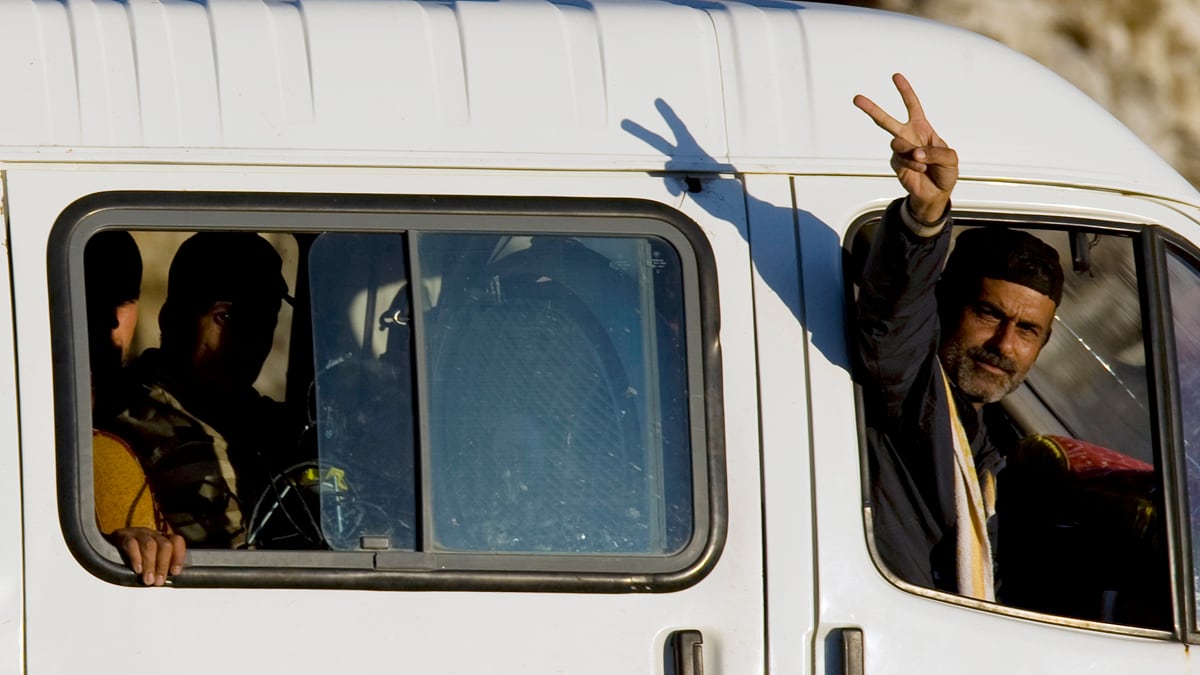Syrian tanks and armored vehicles stormed into the border village of Khirbet al-Joz in the far northwest of the country Thursday, sending hundreds of villagers scrambling into Turkey.
Yesterday’s military operation came only three days after Syrian President Bashar al-Assad gave a long-awaited speech addressing the uprising, which has rocked the country for more than three weeks and left more than 1,400 dead. Although Assad made some conciliatory gestures in his speech, it fell far short of the reforms demanded by the opposition. In fact, the rumble of the tanks and armored vehicles rang out louder than any of the president’s words and seemed to signal the regime’s true intentions in how it plans to deal with the opposition. “I don’t see this regime responding to any kind of pressure,” says Wissam Tarif, the executive director of Insan, a Syrian human-rights group. “They have made their decision that they will fight to the last man. And they are fighting.”
Roughly 600 refugees fled across the border by midafternoon as the military operation continued. Many were picked up by the Turkish military and bused to nearby refugee camps where more than 10,000 Syrians have already taken shelter from their own government’s crackdown. The Turkish Red Crescent has taken responsibility for the camps, but there are continuing reports of supply shortages and dismal hygiene conditions. The situation is more dire for the hundreds of refugees who are still trapped on the Syrian side of the border as the military digs in.

The Syrian regime appears to be trying to persuade some of these refugees to return to their homes. Groups of men have showed up at the refugee camps in Turkey claiming to be from towns on the Syrian side of the border and highlighting how calm the situation has become. Most of these men have been met with suspicion and even taunts, according to one human-rights worker familiar with the situation in the camps. The distrust stems not only from the ongoing military operation, but also from continuing reports of arrests of refugees who have returned. “Clearly they feel the regime is still trying to trap them,” says Nadim Houry, Human Rights Watch’s senior researcher for Syria and Lebanon, who was at a camp on the Turkish side of the border early Thursday. “They have zero trust after seeing what’s happened to them and those around them.”
The building refugee crisis has clearly put Turkey in a difficult position. On one hand, it has tried to accommodate the thousands of Syrians flooding across the border. But at the same time there appears to be clear frustration in Ankara that the Syrian regime is continuing with its violent crackdown. Prime Minister Recep Tayyip Erdogan lashed out at Assad in a television interview two weeks ago and said the regime's crackdown was "brutality." "The Syrian government is not acting humanely," he said.
Meanwhile, it looks likely there will be more violence today, as the opposition has vowed to hold more protests across the country. “For [the protesters], there’s no going back,” says Houry. “These are two immovable objects headed for collision. It’s an endurance game, and it’s going to be complicated.”






